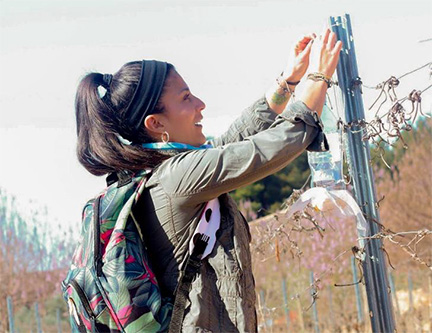E&E Seminar: Sexual conflict in complex environments
Sexual conflict occurs when male and female evolutionary interest do not coincide and is an important determinant of population viability and evolvability.
Speakers
Event series
Content navigation
Description

Sexual conflict occurs when male and female evolutionary interest do not coincide and is an important determinant of population viability and evolvability. Sexual conflict varies in its strength, mechanisms and outcomes across taxa, but we are still far from understanding the reasons that underlie this variation. Most previous studies have used lab populations to study sexual conflict, while its exploration in a natural ecological context remains largely under-explored. Temperature is recognized as a crucial abiotic ecological factor, due to its impact on life history traits and physiological and behavioural responses. However, we know almost nothing about how temperature affect sexual conflict and sexual selection at large. In this seminar, I will explore how temperature variation that mimics average fluctuations that are normal during the reproductive season in the wild, modulates sexual conflict in a wild Drosophila melanogaster population. I will also examine several pre and post-copulatory interactions between males and females that might underlie these effects. Finally, I will discuss the potential population-level consequences and evolutionary effects of temperature affecting sexual conflict.
Biography
Since my Bachelor of Biology in Colombia in 2012, my passion for ecology and animal behavior has guided my professional and academic journey. By studying behavioral patterns in primates and working on environmental management, I discovered the crucial relationship between life and the environment. My Master's degree confirmed this by focusing on enrichment protocols to enhance the welfare of lizards. I am currently pursuing my PhD in Pau Carazo’s lab at the University of Valencia (Spain) since 2019. My research focuses on the ecology of sexual conflict in wild fruit flies. Through this research, I have come to realize that it's not about the model you work with, it's about life itself.
Location
Please note: this seminar will be held in the Eucalyptus Rm and via Zoom, details are included below.
Eucalyptus Room, Rm S205, Level 2, RN Robertson Building (46)
Please click the link below to join the webinar:
Click to follow link.">https://anu.zoom.us/j/82329007315?pwd=K2JnWUVCdzZ4bjVvaFlRbUJCWVBpdz09
Passcode: 039464
Canberra time: please check your local time & date if you are watching from elsewhere.

